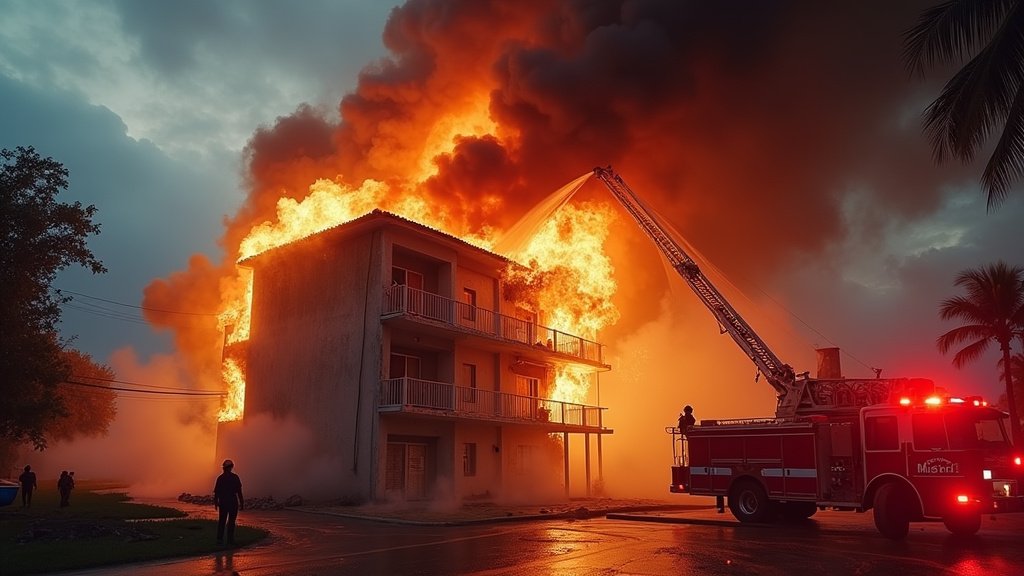In a significant diplomatic turn, the Trump administration has officially thrown its support behind a long-anticipated United Nations plan aimed at tackling the escalating and violent gang crisis gripping Haiti. This crucial endorsement comes six months after United Nations Secretary-General António Guterres first proposed global organization funding for a multinational force dedicated to bringing stability back to the Caribbean nation.
For months, the international community has watched with growing concern as gang violence plunged Haiti into a profound humanitarian and security crisis, destabilizing the country and posing a clear threat to hemispheric stability. The lack of concrete, large-scale international intervention had left many questioning the resolve of global powers. Now, with the United States signaling its commitment, there is renewed hope that a more robust response is on the horizon, potentially marking a pivotal moment in the ongoing crisis that has captured global news attention.
A Critical Pivot in Diplomatic Efforts
The United States has formally announced its intention to share a draft U.N. Security Council Resolution with the U.N. Security Council. This proposed resolution seeks to establish a U.N. Support Office for a multinational security force in Haiti, a critical step towards providing the necessary logistical and operational framework for an effective intervention. A State Department spokesperson confirmed this development to the Miami Herald, underscoring Washington’s renewed focus on the Haitian crisis.
While the exact presentation date for a vote on the resolution has not been specified, sources close to the discussions suggest it may be brought up during an upcoming Security Council meeting. This particular session is dedicated to children, armed conflict, and human rights in Haiti, a poignant reminder of the profound human cost of the prevailing violence. The meeting is being organized by Panama, which currently holds the rotating presidency of the Security Council, lending additional weight to the timing of the U.S. proposal.
Rekindling the Multinational Mission
This robust U.S. backing for what is effectively a logistics package is expected to breathe new life into discussions surrounding the proposed Kenya-led mission in Haiti. For months, the multinational force concept had languished amidst funding uncertainties and political hesitancy. “U.S. backing for the logistics package is expected to revitalize discussions about the Kenya-led mission in Haiti,” stated Daniel Forti, a senior U.N. analyst with the International Crisis Group. Forti’s assessment highlights the pivotal role Washington’s engagement plays in galvanizing international action.
Beyond just rhetorical support, the United States has also emphasized the need for concrete commitments from other regional partners and stakeholders. This includes a clear demand for robust financial contributions, which are vital for sustaining a long-term security operation, as well as firm commitments regarding contributing forces. The success of any multinational effort hinges on broad international participation and shared responsibility, ensuring the burden does not fall disproportionately on a few nations.
The Persistent Challenge of Funding and Opposition
Despite this encouraging development, significant hurdles remain, particularly concerning funding and anticipated geopolitical pushback. The current U.N. Trust Fund for Haiti stands at a modest $112.5 million. While this sum is sufficient to cover salaries for personnel involved in the multinational security force, it falls critically short of what is needed for essential equipment, operational costs, or, crucially, for expanding the force to its envisioned strength of 2,500 personnel. This financial shortfall presents a formidable obstacle that must be overcome for the mission to achieve its objectives comprehensively.
Further complicating the path forward is the anticipated opposition from key Security Council members. Both China and Russia are expected to push back against the U.S. proposal. Their resistance could manifest in various forms, from diplomatic delays to outright vetoes, highlighting the complex geopolitical dynamics that often impede decisive international action on critical issues. The unfolding situation in Haiti is becoming a truly trending global issue, attracting considerable diplomatic and media attention.
Hemispheric Stability at Stake
At the core of these international efforts is the urgent need to address the deeply destabilizing impact of ongoing gang violence on Haiti. Beyond the immediate suffering of its citizens, the pervasive insecurity undermines governance, cripples essential services, and exacerbates a profound humanitarian crisis. The gangs’ unchecked power prevents the delivery of aid, disrupts economic activity, and fuels widespread fear, forcing countless Haitians from their homes and pushing the nation further towards the brink.
Moreover, the United States and its regional allies view the uncontained violence in Haiti as a direct threat to the wider hemisphere. The potential for regional spillover, including increased migration flows and illicit activities, poses significant security concerns for neighboring countries and the broader Caribbean basin. Stabilizing Haiti is therefore not just a matter of humanitarian concern but a strategic imperative for regional security and prosperity.
Looking Ahead: A Glimmer of Hope Amidst Daunting Challenges
The Trump administration’s newfound support for the U.N.’s security plan represents a crucial, albeit belated, step towards addressing Haiti’s multifaceted crisis. While the journey ahead is fraught with challenges, from securing adequate funding and overcoming diplomatic resistance to effectively deploying and sustaining a multinational force, this development offers a glimmer of hope. The focus now shifts to the U.N. Security Council, where the draft resolution will face scrutiny and debate. The success of this initiative hinges on robust international cooperation and a shared commitment to restoring peace and order in a nation long plagued by instability and violence, potentially setting a new headline for international cooperation.





